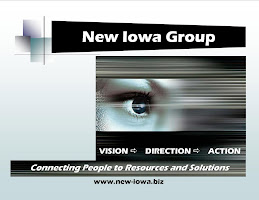 All business owners know that before their business opens they have expenses. You may have incurred expenses in researching your business, preparing your business plan, advanced rent, remodeling or decorating, furniture and equipment, inventory, advertising or marketing, etc. Since your business wasn't "officially" open many business owners just use their personal checking account and/or personal credit card to pay for these expenses. This seems natural and easy and the last thing a new business owner wants or needs is something more complicated.
All business owners know that before their business opens they have expenses. You may have incurred expenses in researching your business, preparing your business plan, advanced rent, remodeling or decorating, furniture and equipment, inventory, advertising or marketing, etc. Since your business wasn't "officially" open many business owners just use their personal checking account and/or personal credit card to pay for these expenses. This seems natural and easy and the last thing a new business owner wants or needs is something more complicated.As time goes by the business owner may have established a business checking account and perhaps even a business credit card, but the habit of using their personal checking account and credit card has already been established. The business owners don't think twice about depositing business income into their personal account or picking up some personal items when paying with a business credit card. This bad habit has its own name – it's called commingling.
The main problems with commingling are:
- Unless you are very well versed in accounting you undoubtedly have a much bigger mess than you think you do. It's not uncommon for me to see people who have expensed their personal car payments as "auto expense" even though the business doesn't own their car. Even more common is multi-level marketers who purchase and expenses their inventory on their company books, but use it personally.
Obviously the best course of action is to never get into this mess in the first place. However, if it's too late for that, try these steps to help straighten things out:
- First, stop the commingling. Always have a business debit card and credit card with you. If you are at a store where you intend on purchasing both personal items and business items, separate them before you get to the check stand and have them ring up two separate invoices.
- Second, review all your business and personal receipts. Highlight all your business expenses on each receipt and total them.
- Third, review your accounting program against your highlighted receipts and correct any errors you may have made. If you've recorded a personal expense on your company books remove it. If you've forgotten to record a business expense on your company's books add it. If you're not sure if an expense is a business or personal expense ask yourself these questions:
1) Is this expense necessary to generate income in my business?
2) Is this an expense that other businesses in my industry would also have?
If your answers to the two questions above are "yes", then chances are it's a legitimate business expense.
- Fourth, review all your sales and trace them to your deposit slips. Make sure that any deposits which you entered into your personal account have been accounted for in your business. If you've deposited any personal money into your business make sure it has not been recorded as income, but rather a loan or capital, etc.
After sorting out this mess once you won't want to do it again, which is usually good enough incentive to start doing things right.





No comments:
Post a Comment